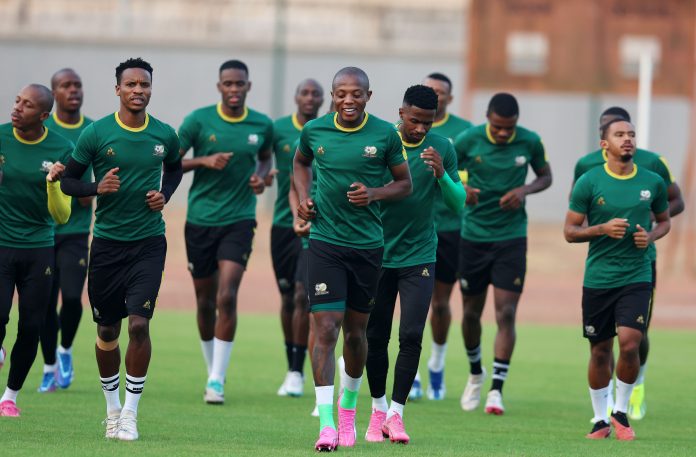I was one of those sceptics who did not give Bafana Bafana a chance. As we speak, I am forced to cheat on my new, strict diet, and I am wolfing down copious servings of humble pie.
When Bafana left Mzansi for the 2023 Africa Cup of Nations in Ivory Coast, with less than ideal preparations and uninspiring practice matches, it was a question of just having to honour the tournament, make the numbers, and then come back home after the first round.
A shortage of talent resulted in Mamelodi Sundowns players becoming the spine and the nerve centre of the team. Overseas players, except for a few like Sphephelo Sithole and Mihlali Mayambela, were not chosen. There was not even one Kaizer Chiefs player, and the noise coming from the Amakhosi die-hard supporters is still unbearable.
The players had not taken a break, with the PSL fixture schedule running until New Year’s Eve, a few days before departure to Ivory Coast. So, it was déjà vu yet again with the shenanigans that have become characteristic of Safa and the PSL.
I have been covering Bafana since 2002, and I thought I knew the team like the back of my hand. Sadly, 2002 is the year the rot started, with Bafana losing their fearsome aura.
For 22 years, I have been in the trenches with the team, from Bujumbura to Ouagadougou, from Kumasi to Cape Verde, from Ndjamena to Senegal, from Cairo to Buenos Aires, and from Bavaria to Los Angeles, to mention but a few. The team has never shown such courage and determination as compared to the current crop of players.
What we have just witnessed is that the future is bright, and planning and foresight must continue unabated.
Broos and his unheralded soldiers have laid the platform, and there must be a vision and long-term strategies.
Part of Safa and previous coaches’ problem was taking shortcuts and bypassing crucial stages in the players’ right of passage. Coaches, who were brought in haphazardly, without a vision and long-term plans, wanted to take the team from Grade R straight to higher primary, skipping important stages of development and experience.
The likes of Gordon Igesund, Shakes Mashaba, Stuart Baxter and Molefi Ntseki, wanted to take the team to the Fifa World Cups without having staked a claim in Cosafa tournaments or making an impression at Afcon, if the team was able to qualify at all.
Sadly, that would result in a short-circuit all the time, hence the steps backwards and the regression Bafana has undergone.
With this Afcon, the team was able to do the basics right and garner invaluable experience at the same time. It is just a question of slowly phasing out the likes of Themba “Mshishi” Zwane and Percy Tau to make room for future stars like Lyle Foster, Bongokuhle Hlongwane, Cassius Mailula and Khanyisa Mayo, the DStv Premiership top goal scorer this year and last season.
Safa has also fired coaches for trivial and personal things in the past. Don’t be surprised when they start with their nit-picking exercise since Broos is getting all the attention and taking all the credit.
Qualifiers for next year’s Afcon in Morocco are starting in March, and then it will be back to fighting for a spot at the 2026 Fifa World Cup. Bafana have not qualified since 2002 in Korea or Japan, and Broos is looking at the bigger perspective rather than Safa’s eternal desire for bungling and shooting themselves in the foot.
We say hands off Broos, the players, the technical team and the support staff.



